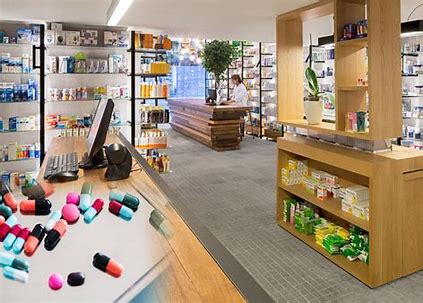The Pharmacy Council of Nigeria (PCN) has shut down 618 places, including pharmacies and patent medicine shops, in Rivers and Bayelsa States. These places were closed because they broke PCN rules.
The council also said five people were arrested for doing illegal activities. Out of the 618 closed places, 178 were pharmacies, 123 were patent medicine shops, and 317 were illegal shops. Nine other places were given warnings to follow the rules.
The reasons for the closures included running shops without permission, not renewing registration, performing medical procedures without approval, and having drugs that should only be given with special permission.
Dr. Suleiman Chiroma, who leads the PCN enforcement team, shared this news at a press briefing in Port Harcourt, Rivers State, on Thursday.
He said the enforcement team visited four local government areas (LGAs) in Rivers State and two in Bayelsa State during the week-long inspection.
Dr. Chiroma explained that the PCN was set up under a law in 2022 to regulate how pharmacy is taught and practiced across Nigeria.
He added that the council must also make sure the rules for drug distribution in Nigeria are followed. This is important so people can get safe and quality medicines.
Chiroma said the PCN has been working in both Rivers and Bayelsa States this week to get rid of fake and poor-quality medicines.
He said Nigeria’s drug supply system has many problems, including illegal and unregistered drug sellers and people handling medicines without the right training. That’s why the PCN had to take action.
The PCN is focusing on the key parts of pharmacy practice — the places, the people, and the way things are done — to make sure they follow safety and quality rules set by the PCN law of 2022.
Chiroma said the rules also cover professional behavior, keeping the environment safe for storing medicines, and making sure the workers are properly trained.
During their checks in Rivers State, they went to Port Harcourt, Obio-Akpor, Ikwerre, and Etche LGAs. In Bayelsa, they visited Yenagoa and Southern Ijaw.
In total, 867 places were checked — 344 pharmacies and 523 patent medicine stores. Five people were arrested for removing PCN closure seals.
Out of those checked, 618 were sealed — 178 pharmacies, 123 patent medicine shops, and 317 illegal shops. Nine others were told to fix their issues.
Of the 618 sealed, 82 were in Bayelsa, and 536 were in Rivers State.
Dr. Chiroma listed the offences: running unapproved shops, not renewing registration, doing medical tasks they’re not allowed to, keeping restricted drugs, keeping too many medicines, training apprentices without approval, and selling retail medicines from wholesale shops.
He also pointed out a worrying trend in Rivers State: untrained staff accessing strong, controlled medicines without supervision.
This is very dangerous and against the rules because it can lead to drug misuse and pose a threat to public safety.
Chiroma added that some shop owners paid for registration but didn’t complete the process, yet still acted like they were fully registered.
He reminded all pharmacy workers to complete their registration properly.
The PCN urged people in Rivers and Bayelsa to be careful about where they buy medicines and report untrained sellers to PCN offices in their states.
He said that real pharmacies and patent medicine vendors should clearly display their licences inside their shops.
Chiroma confirmed that the five people arrested have been handed over to the police and other authorities for legal action.
Finally, he said that getting a licence is not enough — pharmacies must always follow the rules to keep people safe and maintain the council’s good reputation.


